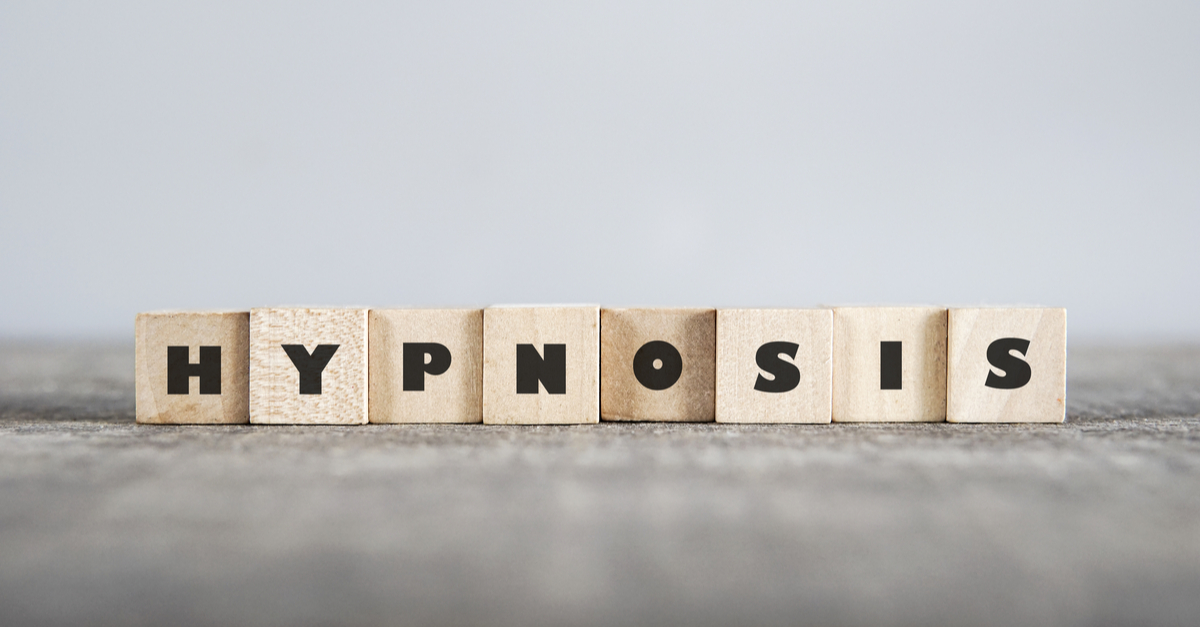Achieving the Greatest Power of Our Mind Using Hypnosis

Our mind is a very precious part of our body, capable of many things, known and unknown, and we are learning more every day about how we can access it more totally, empowering us in ways we have only imagined. According to The Wellness Institute, the conscious mind is responsible for 10% of our daily processes, as it 1) analyzes; 2) thinks and plans; and 3) houses short-term memory. Our sub-conscious mind is responsible for 90%, including 1) long-term memory; 2) emotions and feelings; 3) habit patterns, relationship patterns, and addictions; 4) involuntary bodily functions; 5) creativity; 6) developmental stages; 7) spiritual connection; and 8) intuition. Hypnosis allows us access to the sub-conscious, expanding our control to a much greater degree.
One of the ways we are able to empower people is using hypnosis to develop test-taking strategies, as well as lowering the anxiety. The hypnosis for test preparation also opens up the sub-conscious for the long-term memory. Opening up the subconscious prior to doing the review or study for a test should enable the person to retain the information better and longer, maximizing the preparation time invested. A person will still have to study, but imagine if you study, after opening up your sub-conscious, how much more enhanced your learning could be. In addition, as one becomes “calm and relaxed” during the process, the level of anticipation and anxiety will decrease. Because the level of anxiety often affects the outcome, lowering the anxiety could positively affect the end result as one of the biggest roadblocks to academic achievement is the test anxiety itself. Because hypnosis relaxes a person, in fact, provides the person with the coping skill to relax himself, using hypnosis as a test-preparation tool can lower the anxiety a person has upon approaching the test, evaluation, or even in writing papers. The very simple method of relaxation learned through hypnosis often can alleviate those pre-test jitters, allowing a more positive approach to the exam.
Another area that hypnosis can help enhance performance is in the area of sports enhancement. If our physical abilities are controlled by our minds, allowing a person greater control over the mind will also allow for greater control over the body. Since most of the sports performance also requires mental acuity, the greater access his/her has to their subconscious can also effect increased ability on the court, field, or arena. Again, as anxiety also affects performance, as the level of anxiety is decreased through hypnosis, the focus and concentration is increased, allowing for more improved control, both physical and emotional. Hypnosis has also been used to “achieve optimal levels of performance arousal, as well as using hypnosis to decrease pain and increase healing.” (Wooten and Germain, 2001). In addition, Wooten and Germain also suggest that Heart-Centered Hypnotherapy can be used to identify and then address issues that have been imprinted for years, including fears, resistance to healing, expectations, physical complaints, sleeping difficulties, and other areas which can sorely hamper a person’s performance.
Hypnotherapy, utilizing the regressive technique, allows a person to go back, as far as necessary, in his/her life and identify the scripts that have influenced behaviors. Because of past conclusions, people chose behaviors, which are then acted out, becoming the patterns in one’s life. During the regression, a person is able to look at the script, from an adult view point, allowing for rationalization of the words, and then re-writing the conclusion with more positive behaviors. This very powerful modality can be life-changing as one recognizes that he/she does not have to live with the script he/she heard as a child. With the addition of affirmations, one is then empowered to replace the old limiting scripts with a new empowering way of life.
Wooten, H. R. & St. Germain, N. R. (2001). Heart-centered hypnotherapy in sports counseling. Journal of Heart-Centered Therapies, 4 (1), 57-63.
Tags: affirmations, hypnosis, hypnotherapy, power of our mind
ABOUT THE AUTHOR

Deb England
Licensed Independent Mental Health Practitioner
Licensed Professional Counselor
Advanced Clinical HypnoTherapist- Deb England began working part-time for Wholeness Healing Center in September 2004 and began full-time in May 2005. Deb practices primarily in the Broken Bow office and one day a week in the Grand Island office. Previously she had completed her practicum and internship at Morning Star Alliance, working in the Broken Bow and Grand Island offices.
LATEST ARTICLES BY Deb England
- Traffic Stop: Human Division, a Book Review
- The Shadow Effect: Illuminating the Hidden Power of your True Self, a Book Review
- Adjunct Modalities Round 3, Rocks, Gems, Crystals and More
- Adjunct Modalities: Round 2, Reiki Opportunities
- “Aging: not necessarily a goal but just what happens in life. Can’t change it. Can’t stop it. Can’t even prolong it.“
Subscribe today
Sign up to receive the latest mental health tips and inspiration